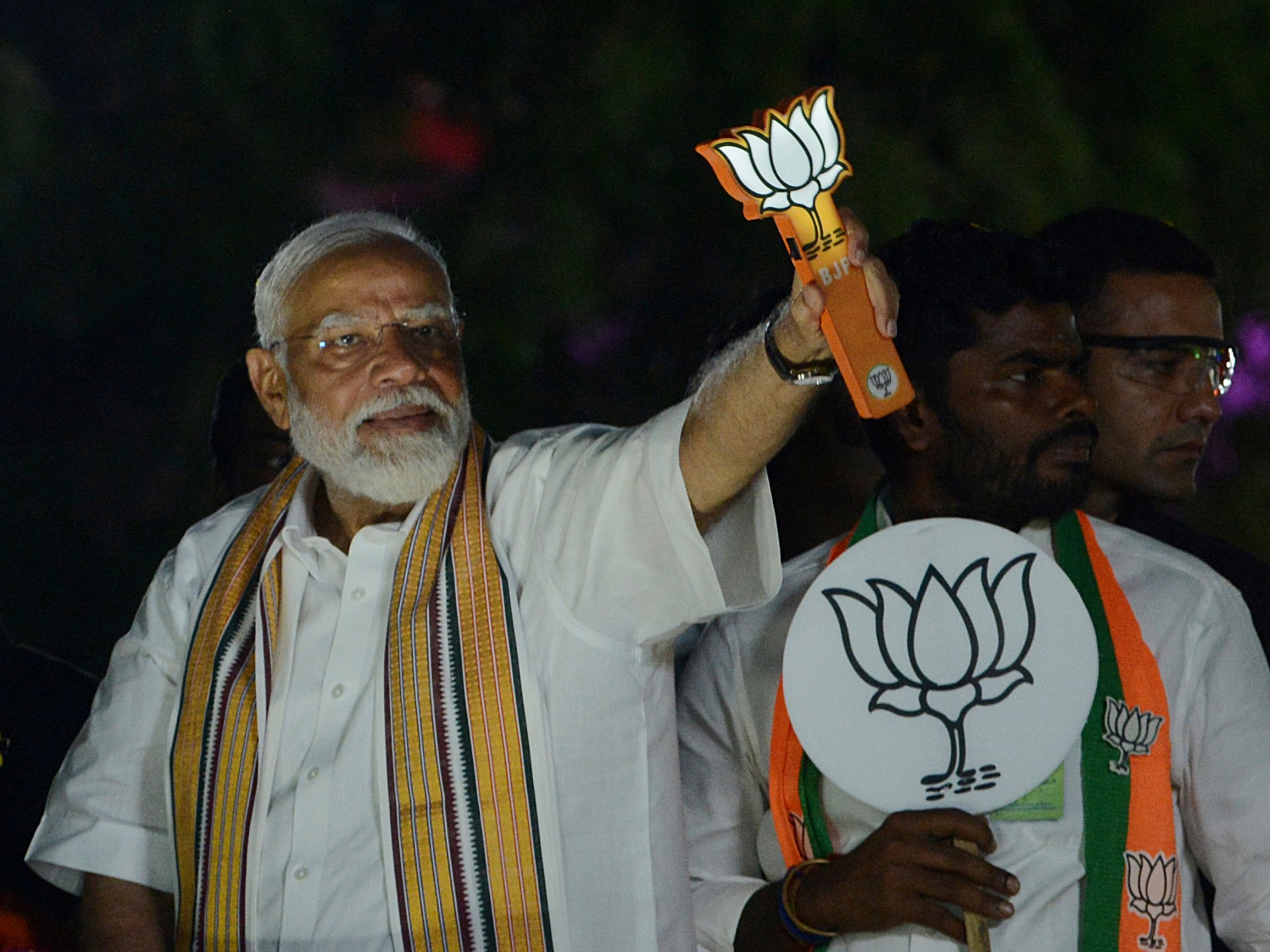
Will Modi win 400 seats in India’s election? The south holds the answer
Al Jazeera
As India votes starting April 19, Modi’s dreams of record win hinge on a part of the country long immune to BJP charms.
New Delhi, India – In the early part of his campaign for India’s upcoming 2024 election, Prime Minister Narendra Modi announced a target for his ruling Bharatiya Janata Party (BJP)-led alliance that is ambitious even by the standards of his successful coalition.
“Abki baar 400 paar,” Modi declared, claiming that the National Democratic Alliance, the ruling group of parties, would cross the 400-seat mark in a house of 543 parliamentary seats, with the BJP alone winning 370. Only once in India’s 77 years as an independent nation has any party or alliance won more than 400 seats: the now-in-opposition Congress Party in 1984, in the aftermath of the assassination of Prime Minister Indira Gandhi.
Yet, with India poised to hold the first phase of its 44-day, seven-stage election on April 19, analysts say the success of Modi’s calculations could hinge on one significant part of the country, which has so far remained largely impervious to the BJP’s Hindu majoritarian charms: the country’s south.
Home to about 20 percent of the nation’s population, the five southern states of Tamil Nadu, Karnataka, Andhra Pradesh, Kerala and Telangana, and the union territories of Puducherry and Lakshadweep, constitute India’s most economically prosperous region. The south contributes more than 30 percent of the country’s gross domestic product (GDP).
But despite Modi’s pitch that his government has helped boost the Indian economy, the BJP won just 30 of the 131 seats from the region – the vast majority of them from one state, Karnataka – in 2019. It drew a blank in Tamil Nadu, Kerala and Andhra Pradesh, and lost the constituencies of Puducherry and Lakshadweep. Some analysts believe a repeat is inevitable.
